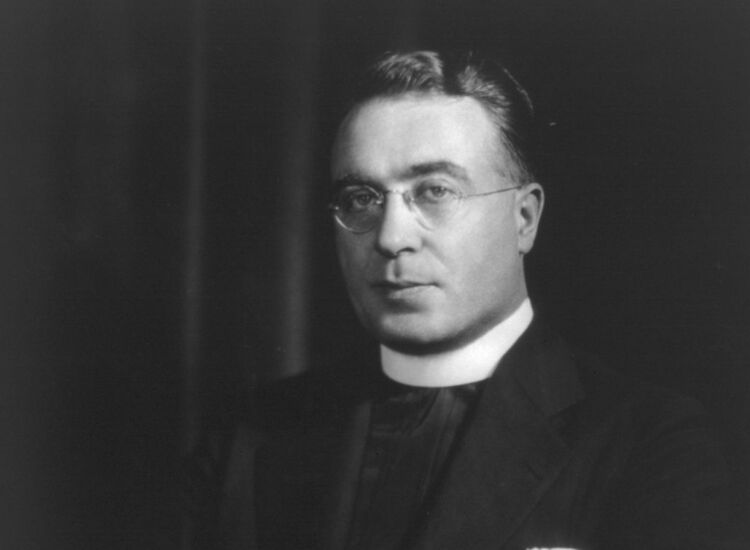David O’Sullivan
By Ray O’Hanlon
The recent dismissal of the President General of the American Irish Historical Society was not an entirely isolated occurrence.
The AIHS board of directors also fired the society’s Director of Business and Development, David O’Sullivan.
This after less than three months on the job.
O’Sullivan, a widely respected figure in the Irish and Irish American community, is Executive Director of the Ireland-U.S. Council.
His dismissal followed the board’s firing, on August 2, of President General James Normile, a corporate attorney who had expressed concerns about the society’s finances.
O’Sullivan was hired after the AIHS board, with James Normile still in his position as President General, decided to appoint a Director of Business and Development with a view to initiating new and more stringent management practices while tackling the society’s strained finances.
Asked for comment on the dismissal and this report, the AIHS released a statement.
The statement reads: “In recent weeks the AIHS has taken several steps to return the organization to its core mission of celebrating and bringing to life the Irish experience in America and the signal contributions of the Irish culture and Irish people and Irish-Americans the world over.
“The Council aims to expand and strengthen this decades-long tradition in actions going forward.
“The AIHS is grateful to so many who have built this into such a world class institution and is committed to taking the necessary actions to continue that work in the months and years ahead.
“Council” is a reference to the AIHS Executive Council, effectively the society’s board of directors.
O’Sullivan began working for the society on May 24, and on what was an agreed one year contract. He was fired, by means of an e-mail, on August 14.
That Mr. Normile and Mr. O’Sullivan viewed the society’s needs in much the same light would seem to be a likely factor in the latter being fired so soon after the former.
But there is also the matter of “The Dead.”
The AIHS’s gilded age town house on Fifth Avenue has been the setting in recent winters for performances of “The Dead 1904,” an adaption of the classic James Joyce tale.
Prior to his dismissal, O’Sullivan had been working on a renewal of the performance contract with the producers of the work, Dot Dot Productions, and those performing it, members of the Manhattan-based Irish Repertory Theatre.
In an August 12 e-mail to the board, via its now acting President General, Maureen Bateman, O’Sullivan stated that he had successfully concluded the negotiations that would involve a potential 2019/2020 run of “the immersive and innovative theatre project that has become so widely-talked-about in the American-Irish community.”
In the e-mail, O’Sullivan was able to deliver some encouraging financial news.
He wrote in part: “The outline terms of the deal are that the Society's guaranteed fee will increase by 25% from $80,000 to $100,000. This is, in my view, a considerable achievement in view of the fact that the opening position of the other side was for a reduction in the fee.
“As part of the negotiations, which I commenced at the start of June, I undertook in good faith to assist in securing individual sponsors to sell out entire evening shows. I believe that one of the reasons our partners have agreed to go forward with the project is that our expression of good faith has materialized in a positive way.”
O’Sullivan wrote that, along with Sophie Colgan, the society’s Events and Marketing Coordinator, he had successfully lined up “two complete evenings sold as sponsorships - one for $15,000 and one for $20,000.
“These have been agreed but obviously will not go forward if the show is not renewed.”
O’Sullivan wrote that he needed confirmation, in writing, to proceed to contract.
He added: “As I hardly need mention, this project represents financial and image-enhancement upside for the Society. The money costs to us of partnering on the project are minuscule. The opportunity costs at this point are also marginal, as the chance is remote of our filling the revenue void with other venue rentals at this late stage of the year.
“Essentially, it is a $100,000 bottom-line bonus that, frankly, I had little optimism about delivering. So, in my view it is good news.”
But, seemingly, not so good as to prompt board approval.
O’Sullivan was informed the following day, August 13, that the society would not be including “The Dead 1904” in its 2019/2020 season.
O’Sullivan replied that he found the response to be “disappointing and discouraging.”
In an e-mail seen by the Echo he wrote: “In my capacity as Director of Business and Development for the Society I write to express disagreement with your decision.
“I was hired by the Board to solve some pressing issues of a business and financial nature at the Society. I feel I would not be living up to the responsibilities I assumed when I accepted the invitation to join the Society's team, if I did not write to you to convey this opinion, which I now do respectfully.
“In my view, your decision is not in the best interests of the Society. It is clear to me that the net financial upside to the Society is significant and material at a time when the Society's finances and revenue sources are under strain.
“I also believe your decision is detrimental in that it will close the doors on renewing an opportunity that has burnished the image of the Society among key publics in the community. The staging of The Dead-1904 these past two years has been important in helping the Society achieve its mission goals.”
The notice that his contractual relationship with the society would be immediately terminated arrived in O’Sullivan’s e-mail the following day, the 14th.
O’Sullivan had the qualifications to back up his views of what direction the AIHS needed to take.
A Dublin native, he is a former marketing director in the U.S. for Ireland’s Industrial Development Agency. Over the years he has provided management consulting services to industrial and commercial clients and multilateral agencies such as the World Bank.
At one point he served as a consultant to GPA, an aircraft leasing firm that is now a unit of GE Capital.
In this instance, however, it turned out that Mr. O’Sullivan’s ideas for the future of the American Irish Historical Society were destined not to fly.








